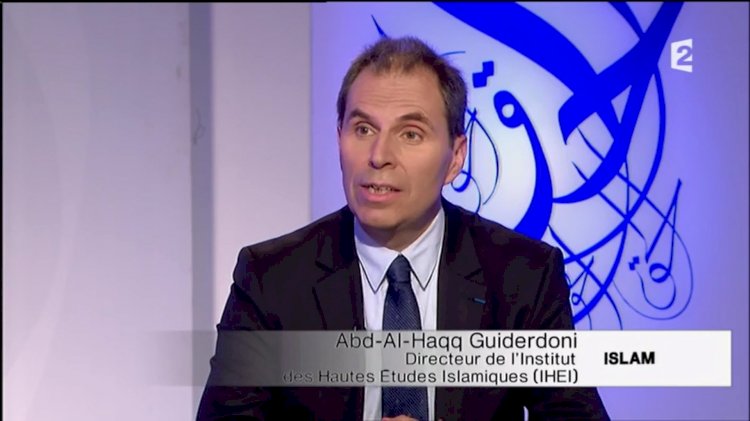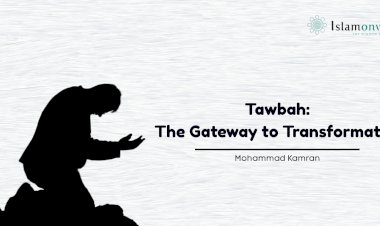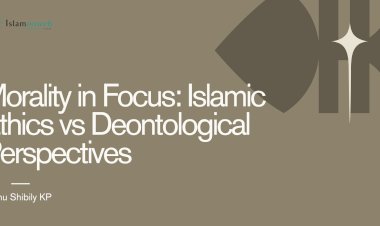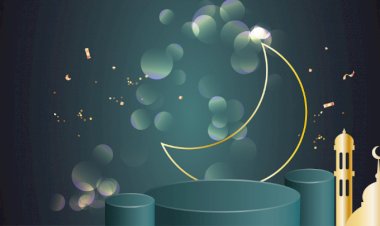On Mystic Nature of Science: A Conversation with French Muslim Scientist Dr. Bruno Abd al Haqq Guiderdoni
A French convert to Islam, Dr Bruno is an astrophysicist and specialist in galaxy formation and evolution. He has also been listed in the top 500 influential Muslims in the world. Having published more than 140 papers and organised several conferences on science subjects, Bruno also serves as Director of the Observatory of Lyon. Besides, he has published more than 60 papers, specifically on Islamic theology and mysticism. Serving now as the Director of the Islamic Institute for Advanced Studies, he has been organizing many interfaith dialogues and conferences worldwide and conducting various television programs on the area. Dr. Bruno was kind enough to spend some time with me when he visited the International Institute for Islamic Thought and Civilization (ISTAC) at Kuala Lumpur, Malaysia in November 2013. During his insightful conversation, he talked about various aspects of science, Islamic sciences, ethics, mystic nature of science, contemplation in light of Qur’an, scientific presentation of religion, and the language of science. Its Malayalam translation was published in Thelitcham Monthly in 2014. Still, it is the apt time to publish this original English version while the negative vibes are spreading from Bruno’s native country, France. No doubt, his words are still as relevant as when he talked seven years ago.
Jafar: Prof., Thank you very much for giving me this opportunity to talk with you for some time. Let us move to the questions directly. My first question is that you have defined Islamic science looking from three main streams: the modern stream, the reconstruction stream, and the traditional stream. Where do you find an educational system walking with the first and second streams? Can you perceive a re-constructional Islamic science?
Bruno: The three streams I described in my lecturer are just usual and easy ways to classify the various approaches to science that developed in Islamic worldview in the last decades. It has been agreed upon as a necessity to define the meaning of Islamic science and the construction of Islamic science as a duty for the Islamic world and Muslims. And as you know, now they disagree on the content of Islamic science as well as on the meaning of this word. Islamic science may be the old science developed in a traditional way or a new science built from Islamic values, or it can be only a universal science practised by Muslims. And every school has its own arguments which are to be considered as valuable. The problem is to be efficient in the world now and the shortcomings of discussing these facts that free schools are making considerations that are either philosophical considerations or rational considerations. That is we are not considering science as it is developing now in the laboratories…and what is necessary is something which helps for the development of science in Islamic world now, and so we may commit to sitting on today's Islamic tools; to use them is interesting lifestreams but you have something more important; in the practice of science as it is done now in the laboratories all over the world by a scientist. As a scientist, I am a Muslim. You have other faces also. So the idea is to develop a new meaning; to develop the science as it is developed now and try to see what can be considered Islamic science in the... I liked very much yesterday's (25th November 2013) morning talk given by Prof. Kamal Hassan about the meaning of Islamization of science. Islamization of science, for me, it is not a complete reconstruction of science; but it is just looking at science as it is now with an eye of sorting out…that can be considered as a good value and correct assessment of reality but can't be considered as the philosophical constructions which are not scientific; which are just philosophical; which are either one science.
Jafar: So, talking about the value…It means ethics. Islamic science is related more to ethics. So, do you find ethics in science or a kind of science in ethics?
Bruno: Yes…It is one example of Islamization of science. Clearly, it is ethics in science. Science is an ethical practice. Scientists all over the world are looking for the intelligibility of the world. They have to practise science honestly. They have to respect the evidence; they have to respect the different views; they have to respect their fellow scientists. They have to work for the benefit of society. All these values are universal rights which can be considered as Islamic values, and this practice of science can be considered as Islamic, and the ethics of science can be considered as Islamic. Of course, there are also other things in science, which are superimposed to science, such as philosophical interpretations. And as you know in the West, there have been views of science for ideological purposes aligned to science and stand for reinforcing materialism or atheism. But, due to philosophers interested in searching grounds through their ideology or philosophy, it is not intrinsic to science. Science does not lead to atheism. Science does not lead to materialism. But of course, if you are a materialist or if u are an atheist, u can try to find in science the arguments for all your ideas. And Islamization of science will be a criticism of these ideologies or theses philosophies superimposed to science, which are not science. There are ethics in science, and scientists are looking for reality and truth as much as believers are looking for truth. But the difference may be that believers are looking for truth which will make them better human beings whereas the nature of truth that is for science is a little bit different, which is natural reality as it is.
Jafar: Prof., it is great for me to know that you are also deeply knowledgeable about Islamic mysticism. I was thinking to ask what is meant by a scientific mysticism as proposed by Peierce in 1994.
Bruno: I am not familiar with the word 'scientific mysticism' as this person defines it. I think that ultimate religious mysticism is interested in contemplating reality, the contemplation of ultimate truth. And the teaching of Islamic mysticism, as it is possible to other approaches, the contemplation of ultimate truth already in this life before leaving for hereafter and teaching of Islamic mysticism as it is for the teaching of other kinds of mysticism; and it is something which also has some resonance with its scientific approach because scientists are also looking for truth; they are also looking for explanations. Of course, they would like to have the ultimate explanation. We do not know whether an ultimate explanation of reality is possible in science. My personal feeling is that it is not possible. And that the ultimate answers to our questions are rather of mystical nature or scientific nature. And it means that even science can't go back very far in the description of reality. It can't develop an extraordinary world of galaxies, stars, planets, life forms and so on; it's just one level of reality, the material level. And if we are looking for the ultimate reality we have to use an approach, and the mystical part is this kind of approach in which reason is used; but not only reason but also the intellect; intellectual capability of the human being to address the truth intuitively with spiritual intuition. And these things are not easily described by the human language. They can only be described by symbols. So, it is very important to keep in mind. And as for me, I am very happy to be a scientist, and I am fond of science. But I was not completely satisfied with science when I had to look for truth, truth in Islam's spiritual path, truth in the mystical path of Islam that is more capable of fulfilling my needs, my quench, and thirst.
Jafar: And that is why you have a habit of contemplation. So, what do you think how to contemplate, either a scientific contemplation in the light of Qur’an or a Qur’anic/ religious contemplation in the light of science?
Bruno: Yes, as you know the location of the human being; the purpose of a human being on earth is to acknowledge his God and be thankful to God through the worship. And worship is ultimately a contemplation; to contemplate the majesty of beauty, and we try to describe the eternity, the incorrect views you have about God. And every single instant, moment of our life is an opportunity of contemplating God through the signs. So, there is a contemplative aspect of life. We can contemplate nature. We can contemplate human society. We can contemplate our actions. And we have to acknowledge each of the actions in our lives. If we are believers, we know that every action has meaning. Every feeling and happening have a meaning; and this, of course, can also be developed from a scientific perspective. Nature is an amazing support for contemplating because of its beauty, majesty and signs in this world. We contemplate the sky; we contemplate the stars, galaxies, the cosmos, the beauty of the landscapes, and the extraordinary complexity of life forms. We are contemplating the actions in the world and something which has a spiritual meaning. Being a scientist, it someway can help this kind of contemplation, because scientists are those who keep trying to go deeper into nature, world, and see more phenomena, but some scientists unfortunately lose this prospect. They are not aware of the meaning of what they are doing; not aware of the meaning of what they see in the world. But… it is a pity for them.
Jafar: And talking about the aspect of truth in science: I think Karl Popper has mentioned the aspect of truth in science. Science is coming closer to the truth now. The recent trend in Western people or the people of science is that they relate science more to theory than to the truth aspect of life. So how do you define truth and theory in science?
Bruno: As you know, after Karl Popper, such as Thomas Kuhn, Paul. K. Rappen…all these are philosophers and scientists of the 20th century. The notion of scientific truth has been somewhere lost. We don't know how to define scientific truth. It is more complex. Even if many scientists speak of the world, the world of truth, or do wrong for their theories, it is just an easy way to speak because it is not possible to define scientific truth with accuracy. So, we have theories which are corroborated by facts. That is why they are quite strong because they can explain the facts. They can describe the facts for some time and till a new theory appears. We know that a description of a fact or phenomena, and none of our theories can be considered absolutely true. Because the natural things, reliable facts and reliable theories, reliable explanations of a world, these theories are quite strong because they have been corroborated, reinforced by many experiments or observations; that we are still unable to reach the ultimate truth. And ultimate truth is a reality which appears in religious prospect only. So, my feeling is that we are approaching truth that is hard to wait for the ultimate encounter with our Lord, that to face ultimate truth, we answer all our questions.
Jafar: Thinking about the creation, the creation as a metaphysical entity in the aspect of science: So, what do you think how can a scientist think of the creation, which is an intelligible entity, as a metaphysical entity? Can a scientist think as an intelligible entity?
Bruno: There are two answers to your question. First of all, it is very difficult to think of the appearance of something from absolutely nothing in science because science is based on laws, conservation of laws; and this conservation of laws…they explain the appearance of a new thing from an old thing. But, the story of the evolution of cosmos and even in the current cosmology, the big bang cosmology, we know that something was present before the big bang, that before the appearance of expanding space, and flowing time and matter and energy, as we know, that was something which was probably a mix of time, space, vacuum and energy, and new theories of particle physics are trying to describe the pre-big bang cosmology. And these are still speculative ideas that may be someway corroborated in future in sha Allah. So, in this origin, it is difficult to explain radical creation, which is the creation of something out of nothing. But, we see a continuous creation in the world because the evolution of cosmos described by science and evolutionary life described by science…this was a story of the appearance of new things in the world. That is, the universe is not dull players where nothing happens. Many things happen; many new things happen in the universe, and they are continuously new things that appear in the universe; new galaxies that form new stars; new planets, new clay forms, and so on. And it's very interesting to see this kind of continuous creation and of new things in the world and cosmos. So, this is the second meaning of creation in this continuous evolutionary cosmos. And the third possible meaning of creation could be that heard about existence. We should be barely astonished by facts fixed by reality, which is the contemplational reality, a mystical act. We have many theories in the mind of a physicist where about theories about the nature of particle physics. Most of these theories are, they are mathematically possible. But they are not in origin. They are not in the world. And it's a mystery to explain why this specific theory has corresponded to reality. They are theories; just mathematical entities which are not corresponding to reality. So, some of the possible things presenting realities of a possible field are not exactly reality. But for a believer, they explain that God is the actual being, and he has given some of the possible things in his mind. And these possible things are those which have been given by God; our feelings which observe reality. So, what we are saying is, reality is a result of reality; and that in many prospects, science is a contemplational culture because, we are saying among all the possible things, all the possible mathematical theories these theories are mystical contemplation.
Jafar: Again, I would like to go to mysticism. What is the specific relationship of mysticism to the aspect of science or the theory of science?
Bruno: In some way, mysticism is a quest for knowledge. It is a fulfilment for the quest for knowledge because, as you know, a quest for knowledge is a teaching for Muslims. Of course, we can look for actual knowledge or we can look for a kind of theoretical knowledge; global knowledge. And I think those who follow the mystical part, those who are looking for global knowledge, they have passion for getting knowledge. And the original knowledge is a knowledge with which humans contemplate God. Those who follow mystical way are also interested by every single moment of their life which is, we said previously, a supporting of contemplation and of course if one goes to science with this prospect, science becomes to clap around for contemplation and science can be given this kind of mystical meaning which makes very exciting and very fruitful for spiritual nature.
Jafar: So as a Muslim scientist among the Western people, what do you think about a scientific life in relation to a Muslim scientist generally?
Bruno: What do you mean by 'scientific life'? Do you mean a life dedicated to science?!
Jafar: It may be a life related to science, because, you know there is one Prophetic verse saying that it is compulsory for a Muslim to seek the ʾulūm; it means various disciplines. So, what does it mean to have a scientific life in relation to a Muslim?
Bruno: In history, if you look the history of the Islamic world we have many Muslims who dedicated their lives to science, to the quest for science, whether these sciences were ʾulūm dīniyyah or ʾulūm ʾaqliyyah - religious science or rational science. If we want to use the classical classification, these are the examples which can be used for now. These people dedicated their lives to the quest for ʾulūm - all kinds of knowledge. They were also believers who were not disturbed by science because They were integrating all things with the prospects of thawḥīd, the oneness of God. So, they can put various levels of knowledge in harmonious construction without any conflict or any contradiction. Of course, there are contradictions. But these contradictions are just apparent because there is some truth, and they can act as incentives for better understanding of religion and science. We have to understand our lives as the path. We are not people who are sitting underground. We are people walking on the path toward God. We need something which is open. We need a teaching of origin and to help go on the path; to help us walk on the path and that is the symbol of science for. Science is also a helping process. It cannot be false and can't be considered as a closed box. It is something which is open to new knowledge, to new experiments, to new observations. And so, there is a kind of similarity between this openness of origin and openness of science. If we are open people looking for knowledge, we are welcoming creation. We are welcoming science in every instant of our life, in every single moment of our life. And we can be happy because we are continuously praising God through knowledge that he is sending to us.
Jafar: So, as an active Muslim or a Muslim scientist, how do you think a Muslim scientist can constructively interact with the people of science or the community of Western people for today?
Bruno: As you know there is a scientific community worldwide, and there is a language of science which is useful for communicating with others. And I think a Muslim scientist has to be part of this network. There are many Muslim scientists who are working in various places, in the West and in emerging countries. They are the example of the Muslim representatives in these scientific networks. But I think Muslim scientists are lacking something else to this network; something on the issue of the purpose, and the issue of meaning, something which is lacking unfortunately to the world of 21st century. Many people have lost their reference. They have lost their idea of purpose in their lives and in the world. Muslims are those who are bringing this ultimate message to humankind in search of the oneness of God, of the unity of humankind, and the purpose of life. And we can be witnesses of this truth in our scientific practice first by, for example, our life and second, what we can say about the beauty and majesty that we see in this cosmos which bounds to the beauty and majesty of the creator. So, we have to participate in the scientific endeavour and we also have to add the values, the values of Islamic scientific exchanges.
Jafar: Currently, there is a lack of scientific presentation of religion. I am talking about science and religion. Relating religion with science, of course, as it is usual for us, in the current trend of the world, there is a lack of scientific presentation. So, what would you propose to nurture a culture of scientific presentation of religion?
Bruno: It is a big challenge clearly. You cannot do as science did not exist in the world of course. It is one of the major forces that is shaping the 21st century, which is shaping human society. We need to incorporate science in our worldview. But, of course, science is not able to give meaning to things. And what is missing now is the issue of meaning. And so, we have to build a worldview which is defined by science because science is just describing reality. It is describing the world as it is created by God. So, we have to build upon this scientific worldview. And we have to add up or to reserve a mystical or spiritual teaching which gives us the idea of the purpose. We use the new way of presenting religion to the world of the 21st century and for all these young people who are studying in universities all around the world, who have a scientific line; who are looking for faith, who are looking for the purpose of their life. They need a new way of presenting the religion because the old way may be a little bit dogmatic in a sense as it has been built upon the old vision of the world; as it was done in the middle ages even in the golden period of Islam. But the world that was seen at that time was not as the world as it is seen now, which has been more extended, more complicated, more diverse. So, we need this re-elaboration of teaching and something which has to be done in the 21st century. And I will add one last sentence: It has to be done in a dialogue with other faiths because there is a big challenge in the 21st century; we have to learn how to live together on a planet which has limited resources; natural resources. And we have to share the resources. All civilizations, all the religions; they have to give spirit together. So, we need this worldview to encompass the diversity of humankind. We have to build up these new presentation forms and also in the idea of dialogue which is something absolutely necessary for the 21st century.
Jafar: Prof., my last question is about the worldview and its development from the language of science. Do you think that Muslims possess a language of science to develop their worldview now?
Bruno: I think that this language of science has to be elaborated; because, for those who are speaking languages from the West, there is not much problem for thinking about science. English is the language of scientific exchanges as well as other languages such as French and German. But translating the concepts are to be elaborated by science into other languages such as Arabic from the 20th century; something which has to be done; and it is not an easy task. The problem is that scholars of religions do not speak Western languages which are necessary for understanding science and Westerners who are knowledgeable about science do not speak Arabic or other languages which are necessary to develop a new theoretical approach. So, there is an issue of language, which is something to be bridged between the language of science and languages of religions so that it is visible together. It was done during the golden period of Islam through translations; the Arab translators have elaborated new words from Greek and concepts of science at that time. They were able to elaborate the technical vocabulary which was the basis of all Islamic theology-kalam- and philosophy as well as mysticism during the centuries of golden periods of Islam; because this translation of Islamic world was a clear vocabulary for talking about complicated ideas etc. similar elaborations…or maybe it is not necessity…may be things are going to happen. This kind of dialogue between science and faith in the Islamic world are going to happen in various languages. It may happen in English, in French, in Bahasa because as you know the Islamic world, the history of the Islamic world, the centre of reflection of the Islamic world has moved from Damascus to Baghdad, from Baghdad to Andalusia, from Andalusia to Turkey, and from Turkey to other places. So, it is possible that the new places for elaboration of this synthesis are Kuala Lumpur, Paris, Washington or Singapore, Jakarta; and other places are ought to be as well. So, it is something which has to be fulfilled.
Jafar: Thank you so much Professor.for your valuable time. This was a great moment in my life, having talked to you this long. Once again, thank you very much Prof.
Bruno: My pleasure.
Disclaimer
The views expressed in this article are the author’s own and do not necessarily mirror Islamonweb’s editorial stance.
























Leave A Comment